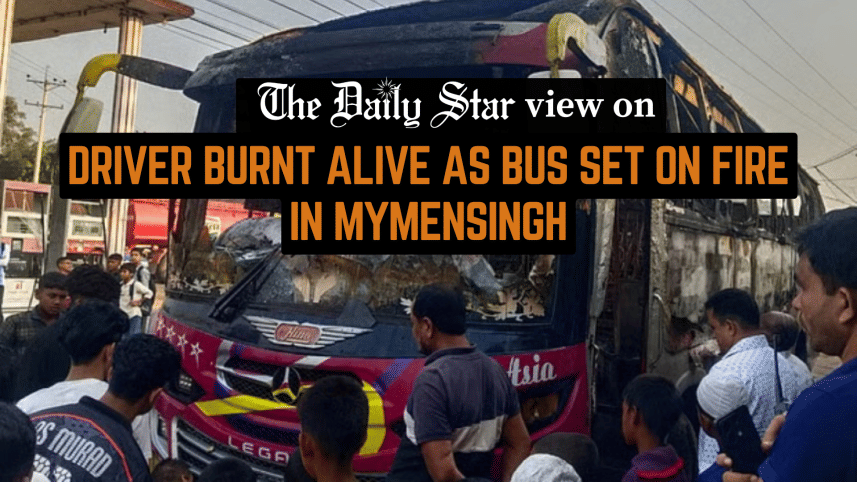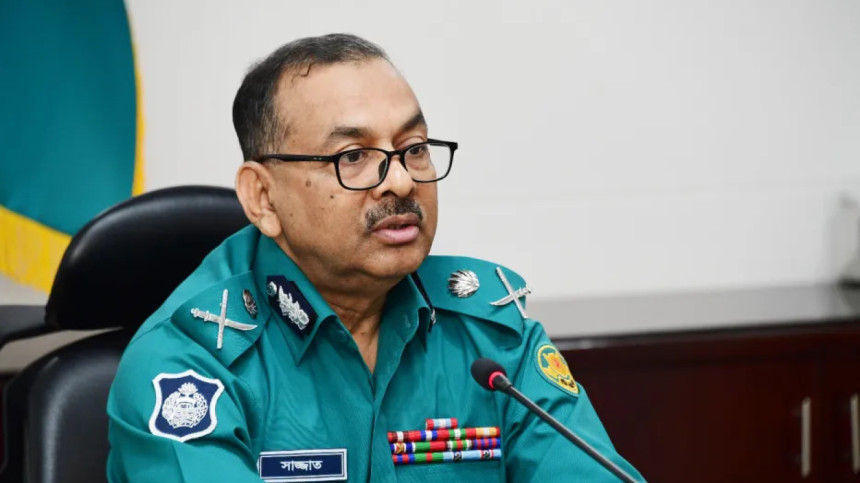Political violence must be stopped immediately

The rise of a new wave of political violence has raised fresh concerns among citizens. The latest incident saw the horrific death of Julhas Mia, a bus driver in Mymensingh, who was burnt alive in his vehicle early Tuesday. This despicable act appears to represent a shift from politically motivated property damage—too often the chosen method of anarchists—to fatal assaults on innocent civilians. The capital city has also been rocked by crude bomb blasts and arson attacks simultaneously. These coordinated acts of intimidation signal a deeply worrying trend ahead of the planned February election, which must be decisively and collectively addressed.
Tension is naturally building as the International Crimes Tribunal prepares to announce the date of its verdict in a case against former prime minister Sheikh Hasina on November 13. In anticipation, authorities have ordered an immediate security ramp-up. Police headquarters have directed all stations in Dhaka to increase patrols and surveillance, while key infrastructure and religious establishments across the country are under heightened protection. According to a statement from the Chief Adviser's Press Wing, a full-scale manhunt has been launched by the Dhaka Metropolitan Police and the Rapid Action Battalion to arrest those behind the attacks. Nevertheless, incidents of violence have persisted across several areas.
Despite a ban on its political activities, the Awami League's call for a "Dhaka Lockdown" is inflaming the situation. While political expression is a democratic right, it must never come at the cost of lives or public order. The party must resist resorting to violence and agitation, and allow the justice system to take its course.
For his part, Home Adviser Jahangir Alam Chowdhury on Tuesday reaffirmed that all security and intelligence agencies are now operating in synchronised coordination. Security patrols have been intensified at key locations, including the metro rail, railway stations, and most notably, the tribunal premises. This enhanced presence is intended to restore public confidence. Crucially, the adviser has directed law enforcement to act immediately on any credible intelligence about emerging threats. He also called for stricter judicial processes, urging the authorities not to grant easy bail to those accused of "terrorism." While this hardline stance on bail may be effective in containing short-term threats, it raises concerns about the potential politicisation of the judiciary.
That said, the evolving security imperatives go beyond addressing immediate threats; it is part of a broader effort to safeguard a peaceful democratic transition through the upcoming election. The interim government is relying on a combination of visible force, tight intelligence coordination, and zero-tolerance stance on political unrest to navigate this volatile period. Bangladesh remains a nation in constant flux, and the recent surge in violence serves as a warning of the consequences if instability is allowed to escalate. In this critical moment, it is essential for all political stakeholders to exercise restraint, while the government must remain resolute in upholding law and order.



 For all latest news, follow The Daily Star's Google News channel.
For all latest news, follow The Daily Star's Google News channel. 

Comments